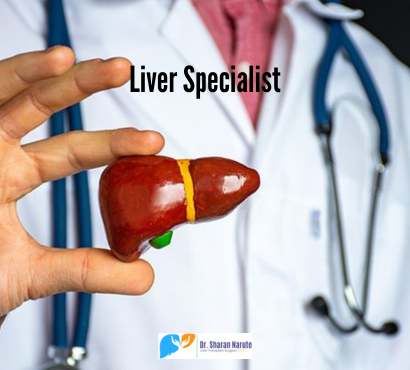The liver is a vital organ responsible for numerous functions essential to maintaining overall health. From detoxifying the blood to aiding in digestion, the liver is a powerhouse of activity. However, various lifestyle factors, infections, and genetic predispositions can impair liver function, leading to severe complications. This is where a liver specialist, also known as a hepatologist, plays a pivotal role.
This blog delves into the expertise of liver specialists, the conditions they treat, and the importance of consulting one for liver-related issues.
Who is a Liver Specialist?
A liver specialist, or hepatologist, is a medical professional trained to diagnose, treat, and manage diseases affecting the liver, gallbladder, bile ducts, and pancreas. Hepatology is a subspecialty of gastroenterology, requiring advanced knowledge and training in liver function and diseases.
Why is the Liver Important?
The liver is the body’s largest internal organ, performing over 500 vital functions, including:
- Detoxification: Removing toxins from the blood.
- Metabolism: Processing nutrients, fats, proteins, and carbohydrates.
- Storage: Storing vitamins, minerals, and glycogen.
- Bile Production: Aiding digestion and fat absorption.
- Immune Function: Fighting infections.
When the liver is compromised, it can affect overall health and lead to life-threatening conditions.
Common Conditions Treated by Liver Specialists
1. Hepatitis
Hepatitis refers to inflammation of the liver, often caused by viral infections (Hepatitis A, B, C) or excessive alcohol use.
- Symptoms: Fatigue, jaundice, abdominal pain, dark urine.
- Role of Liver Specialist: Administer antiviral medications, lifestyle counseling, and vaccination recommendations.
2. Fatty Liver Disease
Excess fat accumulation in the liver, often linked to obesity or metabolic syndrome.
- Symptoms: Usually asymptomatic but can progress to cirrhosis.
- Role of Liver Specialist: Suggest dietary changes, weight management, and medications.
3. Cirrhosis
Advanced scarring of the liver caused by chronic damage.
- Symptoms: Jaundice, fluid retention, confusion, bleeding.
- Role of Liver Specialist: Manage complications and prepare for potential liver transplant.
4. Liver Cancer
Primary liver cancer or metastatic cancer affecting the liver.
- Symptoms: Weight loss, abdominal pain, loss of appetite.
- Role of Liver Specialist: Collaborate with oncologists for surgery, chemotherapy, or targeted therapy.
5. Liver Failure
The inability of the liver to perform its functions, either acutely or due to chronic conditions.
- Role of Liver Specialist: Provide intensive care, liver dialysis, or transplant options.
6. Bile Duct Disorders
Blockages or inflammation in the bile ducts can lead to severe complications.
- Role of Liver Specialist: Use endoscopic techniques to diagnose and treat bile duct issues.
Diagnostic Tools Used by Liver Specialists
1. Liver Function Tests (LFTs)
Measures enzymes, proteins, and bilirubin levels to assess liver health.
2. Imaging Tests
- Ultrasound: Detects fatty liver, cysts, or tumors.
- CT/MRI scans: Provides detailed images of liver structures.
- FibroScan: Assesses liver fibrosis and stiffness.
3. Liver Biopsy
A small tissue sample is taken for analysis to diagnose conditions like cirrhosis or cancer.
4. Endoscopic Procedures
Endoscopic Retrograde Cholangiopancreatography (ERCP) is used to examine bile ducts and pancreas.
When Should You Consult a Liver Specialist?
If you experience any of the following symptoms or have a history of liver-related issues, consult a hepatologist:
- Persistent fatigue
- Yellowing of the skin or eyes (jaundice)
- Abdominal pain or swelling
- Unexplained weight loss
- Dark-colored urine or pale stools
- Chronic alcohol consumption
Preventive Measures for Liver Health
1. Healthy Diet
- Eat plenty of fruits, vegetables, lean proteins, and whole grains.
- Avoid processed foods and excessive sugar.
2. Regular Exercise
Maintains a healthy weight and reduces fat accumulation in the liver.
3. Limit Alcohol
Excessive alcohol is a major cause of liver damage.
4. Vaccinations
Vaccinate against Hepatitis A and B to reduce the risk of viral infections.
5. Safe Practices
Avoid sharing needles or razors and ensure safe blood transfusions to prevent hepatitis.
6. Regular Checkups
Routine screenings for those at high risk can catch issues early.
Role of Liver Specialists in Liver Transplants
In cases of severe liver failure or end-stage liver disease, a liver transplant may be the only option. Liver specialists:
- Evaluate the patient’s condition and determine eligibility.
- Collaborate with surgeons and transplant teams.
- Provide post-operative care and monitor for rejection or complications.
The liver is an indispensable organ, and its health is critical for overall well-being. Liver specialists play a crucial role in diagnosing, treating, and managing a wide range of liver-related conditions. From preventing complications to guiding liver transplant procedures, their expertise ensures better outcomes and improved quality of life for patients.
If you suspect liver issues or are at risk, don’t delay consulting a hepatologist. A proactive approach can make all the difference in maintaining a healthy liver and a healthy life.
FAQs
1. Can a liver specialist treat non-liver-related conditions?
A: Liver specialists primarily focus on liver health but may treat conditions affecting the bile ducts, pancreas, and gallbladder.
2. How often should I see a liver specialist if I have a fatty liver?
A: Regular follow-ups every 6–12 months are recommended to monitor progression and manage complications.
3. Is liver damage reversible?
A: Early-stage damage, such as fatty liver, can be reversed with lifestyle changes. However, advanced conditions like cirrhosis are irreversible.

